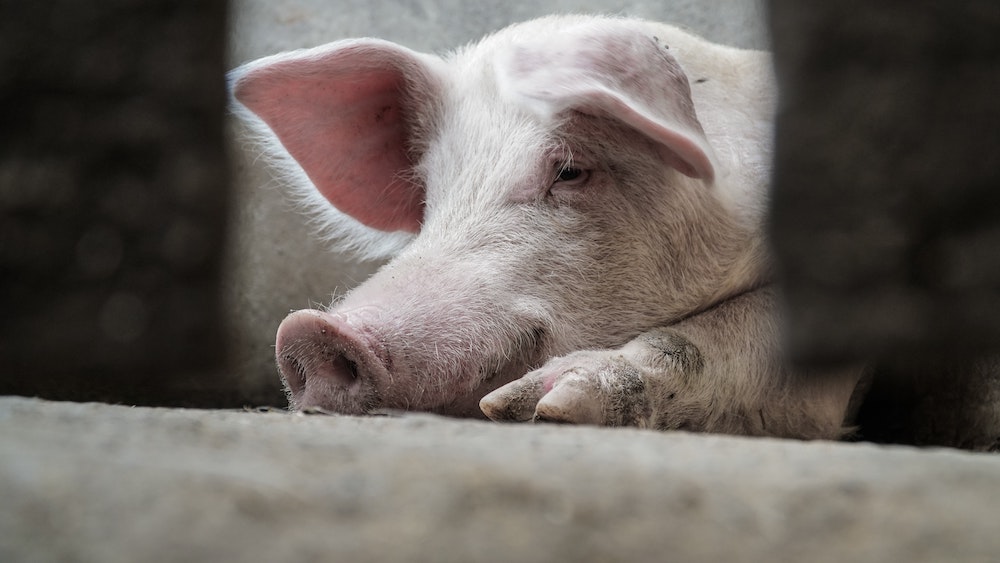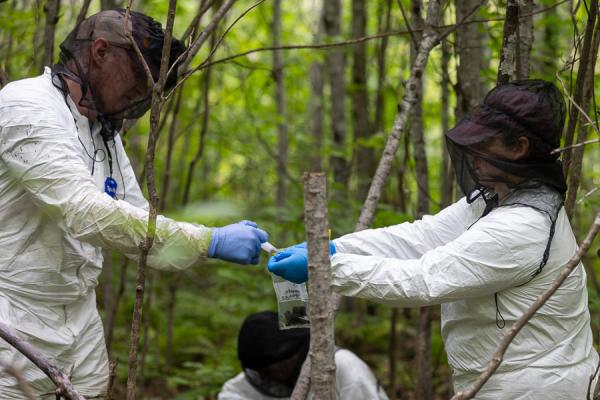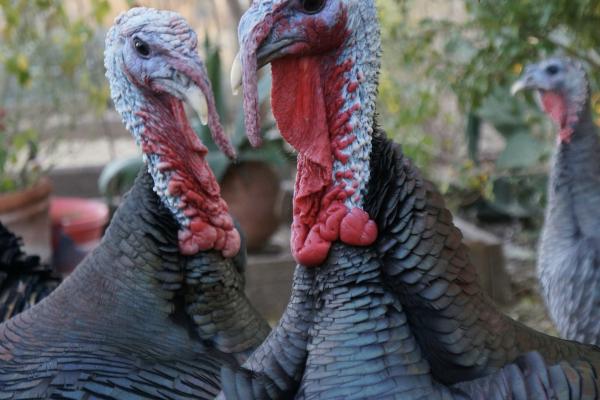Research roundup: Can scientists develop a better vaccine against PRRS variants?
April 14, 2021

Researchers in the University of Minnesota College of Veterinary Medicine (CVM) recently identified specific B cells with the ability to neutralize porcine reproductive and respiratory syndrome (PRRS), one of the biggest threats to the global pork industry. In the United States, PRRS can cost pork producers nearly half a billion dollars per year, and current vaccines provide limited protection against the virus that causes the disease, which is particularly good at mutating. But researchers from the University of Minnesota and The Pirbright Institute in the United Kingdom recently published preliminary research that could lay the groundwork for more effective vaccines against not only slightly different variations of the PRRS virus (PRRSV), but other porcine pathogens as well. These scientists in the CVM’s Department of Veterinary and Biomedical Sciences sought to better understand the antigen-specific antibody response to PRRSV, and whether or not antibodies recognized distantly related strains of the virus. The team took blood samples from pigs that had already been exposed both to a modified live PRRSV vaccine and various field isolates. Through this reverse vaccinology approach, they were able to identify memory B cells — the cells that create antibodies — that were able to bind PRRSV, those that were able to neutralize the virus, and which viral proteins were bound by these B cells and their antibodies. Their findings may lead to more targeted vaccines that utilize this knowledge of key viral proteins that were identified as important targets of viral neutralization in order to design vaccines that are able to induce broadly neutralizing antibodies that protect against multiple variants of PRRSV. The researchers call for future research that further investigates the B cells and antibodies present in PRRSV immune pigs to identify other antibodies that target PRRSV, specifically looking for B cells that can bind to three specific proteins — GP2, GP3, and GP4 — which may be important for virus neutralization due to their involvement in viral entry into host cells. The work was largely funded by the United States Department of Agriculture National Institute of Food and Agriculture.
Read more in the article published February 22 in Frontiers of Immunology.


